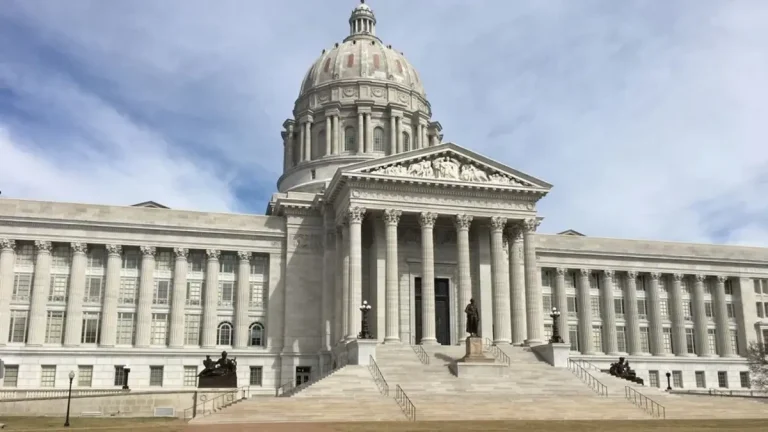🎧 Listen to This Article
Missouri could lose between $170 million and $429 million in annual revenue due to proposed federal tax changes, compounding the state’s budget challenges amid sluggish collections, tax cuts, and controversial plans to fund new sports stadiums.
The sweeping federal tax package, supported by Congressional Republicans and former President Donald Trump, includes provisions that would reduce adjusted gross income and standard deduction changes, which automatically flow through to Missouri’s tax code due to the state’s federal conformity laws.
“We know the state budget years ahead are going to be challenging,” Governor Mike Kehoe said last week, cautioning that Missouri’s revenue growth has failed to outpace inflation for four consecutive years.
Major Revenue Risks
Missouri stands to lose:
- $124 million from the federal increase in the standard deduction;
- $46 million from new deductions on auto loan interest;
- $259 million if Missouri mirrors federal tax exemptions on tips and overtime.
Further exposure comes from an increased state and local tax (SALT) deduction cap, which would raise Missouri’s itemized deduction base. Estimates suggest that a single high-value property in Columbia could see a state tax cut of $141 due to the higher cap.
Dylan Grundman O’Neill of the Institute on Taxation and Economic Policy (ITEP) confirmed the potential revenue impact and warned that Missouri’s automatic link to federal tax definitions makes it especially vulnerable.
“Missouri is one of the states that has relatively high exposure to that change because of its rolling conformity to the federal tax code,” said O’Neill.
ITEP also found that over one-fifth of federal tax cuts would go to Missouri’s top 1%, with average benefits exceeding $58,000, while the bottom 40% of earners would receive only 5% of the total cuts.
Budget Tensions Escalate
The revenue hit comes as lawmakers debate a $1.4 billion financing plan for professional sports stadiums in Kansas City and finalize a $15.8 billion budget despite estimated collections of just $13.6 billion.
Though Missouri still holds a $2.6 billion budget surplus, only $1.4 billion is projected to remain by June 2026. The governor’s current appropriations bill reflects caution, adding just $50 million in general revenue.
State Senate Appropriations Chair Lincoln Hough is calling for more aggressive spending.
“We’ve got hospitals closing down and child care facilities that need support… this billion and a half dollars that we have sitting in the bank, it’s the whole list of projects,” said Hough.
Policy Crossroads Ahead
Missouri’s tax system starts with the federal adjusted gross income, which means nearly all changes made in Washington unless explicitly countered by the state legislature automatically alter the state’s tax base.
“A state could choose to have a modification where they add back the subtracted amount for auto loans,” Walczak explained. “But they would have to choose to do that.”
Missouri’s lawmakers have not yet indicated if they will decouple from the federal changes. But they have already passed a $285 million state tax cut, adding to fiscal pressures.
“With everything passed recently, it has the potential to put Missouri in a much more difficult position,” warned House Minority Leader Ashley Aune (D-Kansas City).
For further details, clarification, contributions, or any concerns regarding this article, please contact us at editorial@tax.news. We value your feedback and are committed to providing accurate and timely information. Please note that our privacy policy will handle all inquiries.



